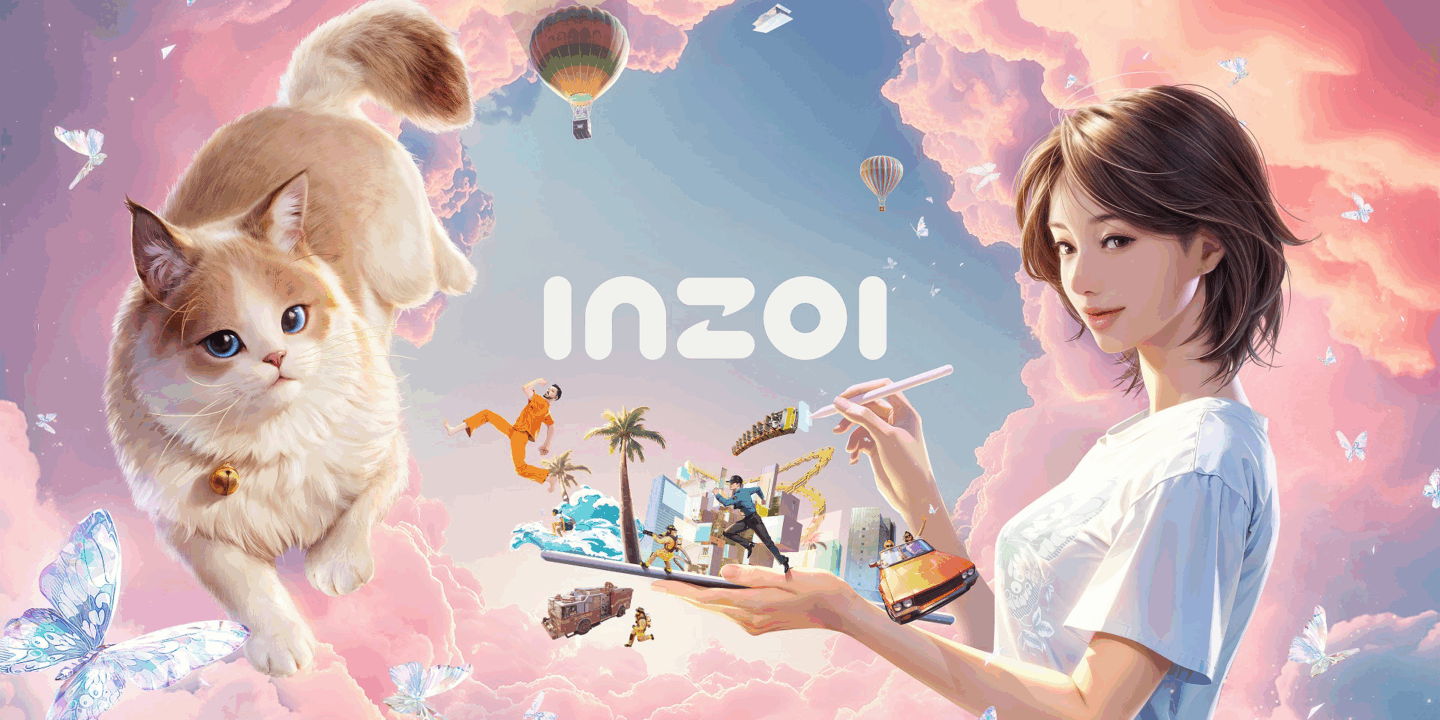
With its stunning visual fidelity and robust creation tools, inZOI makes an immediate impact — one that suggests a thoughtfully built life simulator ready to rival the greats. But beneath its glossy surface lies an experience still struggling to unify its parts. Developed by Krafton, this life sim dares to explore the intricacies of artificial consciousness by letting players sculpt personalities and direct lives in strikingly rendered, semi-open environments. And while it certainly shows potential, inZOI’s current Early Access state feels more like an ambitious prototype than a cohesive world.
In inZOI, players don’t assume the role of a deity but rather a curious intern at a peculiar company called AR Company. This surreal workplace employs both humans and anthropomorphic cats, and tasks you with managing several alternate realities via a sleek tablet interface. Your primary duty involves overseeing the daily routines of digital citizens known as Zois. These characters can be customized from the ground up — from their physical features and wardrobes to personality traits and life goals — before being dropped into their homes to learn, work, love, and age. The parallels to The Sims are unmistakable, but inZOI sets itself apart with a distinctly stylized premise and some bold ideas about individuality and behavior.
The character creation system is easily the game’s standout feature. Players begin by choosing a Zoi’s name, age group (ranging from Child to Senior), and one of 18 Traits that define their emotional and social tendencies. These Traits come with inherent pros and cons — a Charmer might thrive in romance but wallow in sadness longer, while an Adventurer may be lively but prone to boredom. You can further tweak their personality with up to ten preferences, such as a fondness for coffee or aversion to showering. While this framework appears deep on paper, many Zois still ended up feeling interchangeable in practice, with overlapping behaviors dulling the impact of the custom personalities.
Still, the ability to mold your Zoi’s face with a wide range of sliders and anchor points, apply detailed textures like freckles and scars, and experiment with a huge selection of hair options makes the process feel satisfying. The symmetry toggle, which can turn your pristine creation into a delightful oddity, is a fun touch. You can spend hours crafting unique characters, and it’s clear Krafton invested heavily in making this process rewarding.
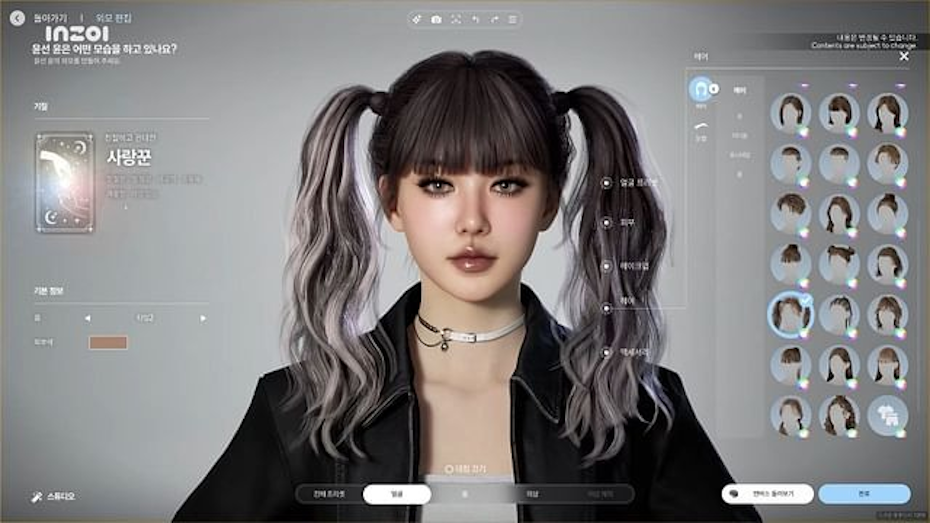
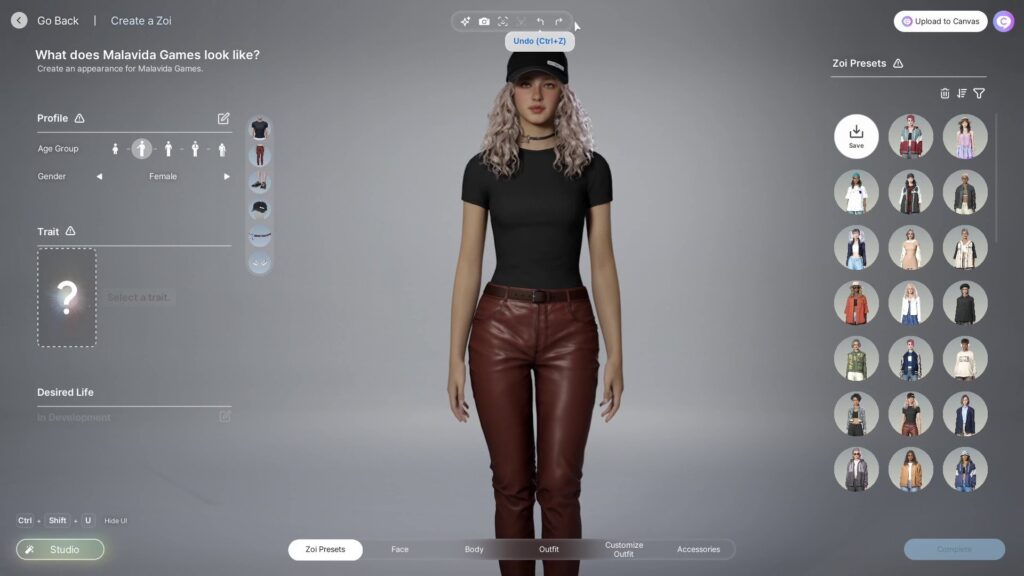
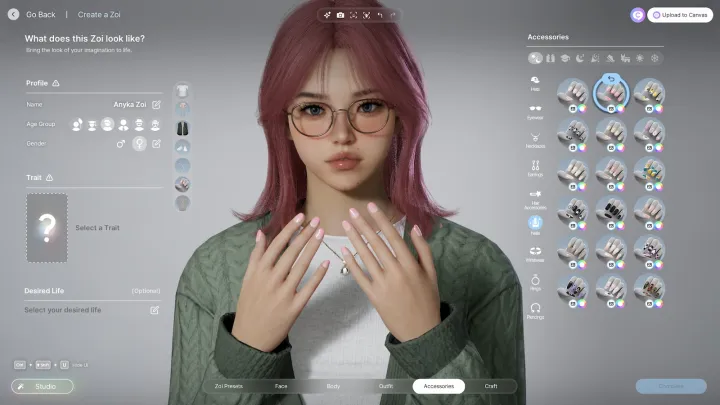
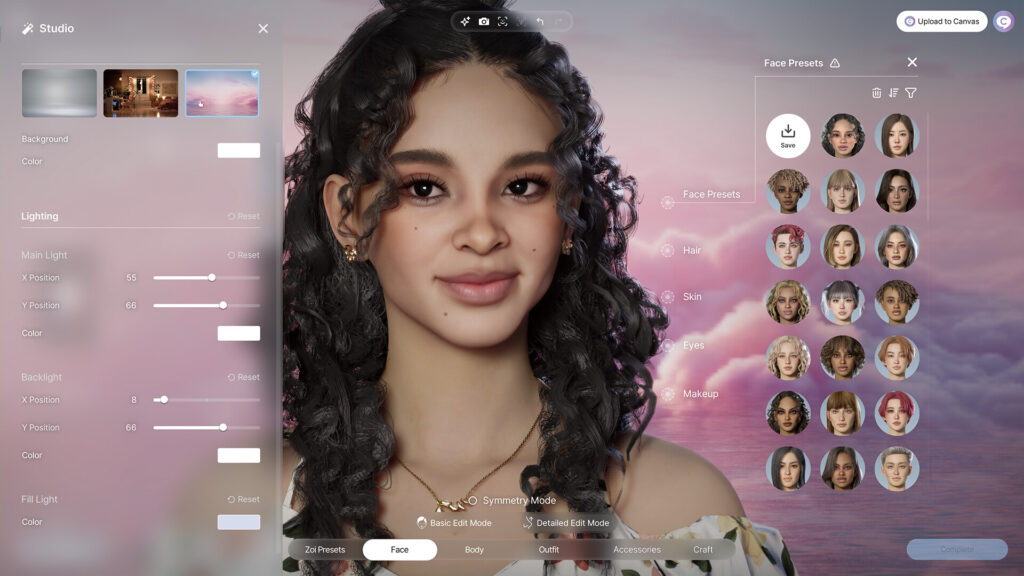
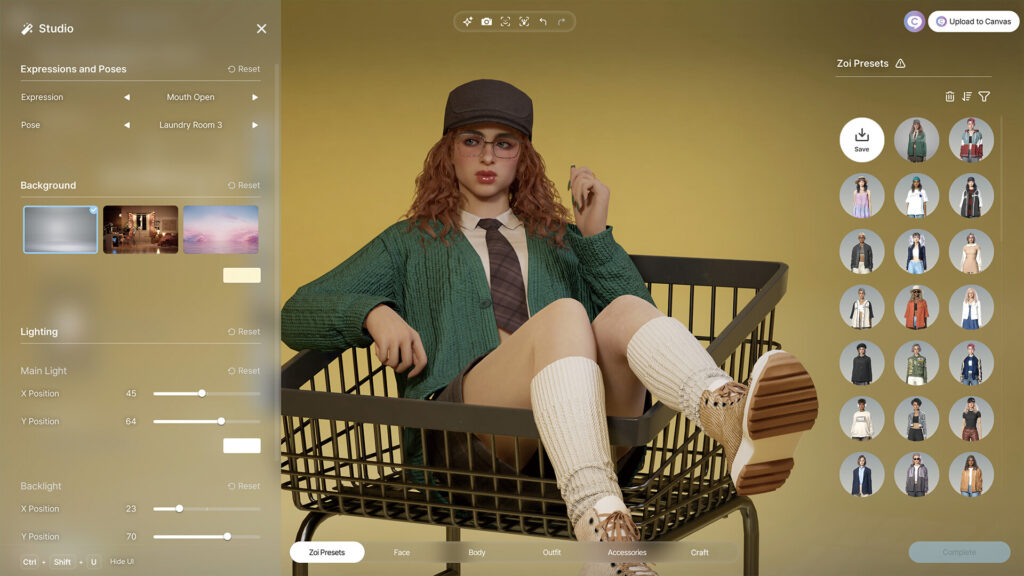
The customization doesn’t stop at faces. Players can style their Zois with nine distinct outfits — from winterwear to swimwear — layering in accessories and even designing clothing in the Craft menu, where sleeves, necklines, and fabrics can be altered. Though this system isn’t especially intricate, it fills gaps in the pre-made wardrobe nicely and encourages creative expression.
Once your household is built, you choose a setting. The Early Access version offers two locales: the sun-soaked Bliss Bay and the skyscraper-filled city of Dowon. Both provide a mix of pre-furnished homes and empty plots, along with a limited number of public spaces. Unfortunately, while these locations look lively at first, their charm wears thin. The cities are oddly quiet despite bustling aesthetics. Zois frequently move in oddly synchronized packs, lending a robotic quality to what should feel like organic community life. Mock storefronts and quirky signage add some flair, but the environments themselves often feel hollow and repetitive.
You can inject life into the world by building your own dream home. Like the character creator, Build Mode is dense with options. You can modify everything from room layouts to wall heights, apply unique textures, and place furniture piece by piece. There’s even a basic crafting system for designing custom furniture by combining different tops and legs. Unfortunately, the user interface often gets in the way, with clunky controls making precision building a frustrating experience. What starts as an ambitious plan for a dream home often ends in compromise due to system limitations.
Beyond aesthetics, you’re tasked with managing the day-to-day of your Zois. Their needs are familiar — hunger, hygiene, sleep — but also include Urges and Ambitions that provide short-term and long-term goals. These systems are intuitive and offer a steady stream of objectives, but often lack satisfying resolution. Zois will work, study, socialize, and form families, but these milestones rarely feel impactful. Watching your Zoi marry or have children doesn’t carry much emotional weight, and the game sometimes misses glaring issues, like newborns being left alone in empty houses.
Tracking each Zoi’s mood, skills, and Values (which evolve through life experiences) provides some depth. For instance, after raising a child, a Zoi might adopt “Love” as a core guiding principle. However, even with these added systems, progression often feels superficial. School and job outcomes rely more on ticking boxes than player interaction, and many major life events unfold without fanfare.
The one system that does inject some personality into the game is Karma. Zois accumulate positive or negative Karma based on their behavior, which influences future events — kind Zois might win the lottery, while misbehaving ones face minor misfortunes. This mechanic adds flavor and some unpredictability, particularly because most Zois seem to drift toward mischief when left unattended. Their antics — stealing wallets, yelling at strangers — can be genuinely amusing and are among the few moments where inZOI truly captures the whimsical spirit that makes life sims compelling.
One noteworthy (and polarizing) aspect is the game’s integration of generative AI. While it powers custom textures in building and character creation tools, its influence appears to extend further — into the game’s dialogue and signage. Conversations often veer into bizarre tangents involving cryptocurrency or philosophical discussions about AI. These moments feel stilted and impersonal, suggesting a reliance on automated writing that detracts from the authenticity and warmth one hopes to find in a social simulation.
Verdict
inZOI is a fascinating, though flawed, experiment. Its Early Access version is packed with clever systems and beautiful design work, particularly in its character and building creation tools. The Karma system adds a welcome touch of chaos, and there are enough surprises to keep curious players engaged for dozens of hours. Yet the game stumbles when it comes to providing meaningful structure. Life events lack impact, personalities blur together, and the world, while pretty, often feels hollow. There’s clearly a foundation here for something remarkable, but it needs time — and refinement — before it can stand shoulder to shoulder with genre giants. For now, inZOI is best appreciated as a creative sandbox, ideal for players who enjoy designing and customizing above all else.




